The robin is a great sight to see in your garden or allotment and is one of the most popular birds in the UK. They are a more common sight in wintertime when other food sources become scarce.
They are often tempted back into your garden to see what treats you have for them, so ideally, you need to know what foods do robins like to eat?
Robins eat off bird tables and flat feeding stations, therefore, to attract robins you will need to provide foods like; mealworms, sliced berries, fruit, seeds and crushed nuts on them.
Robins will also feast on bushes and plants in your garden that produce berries such as ivy berries, juniper berries, mistletoe, blackberries, gooseberries and strawberries.
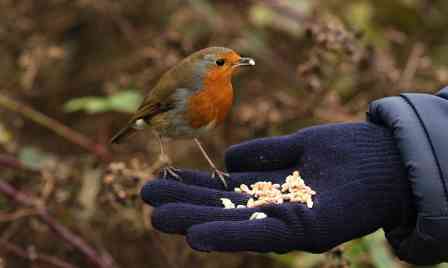
However, first, you need to know…
When’s The Best Time to Start Feeding Robins?
The best time to start feeding robins is around early autumn and right through to early spring.
You should start feeding robins in your garden when it starts getting a bit colder outdoors and their natural food choice and preferences become more scarce.
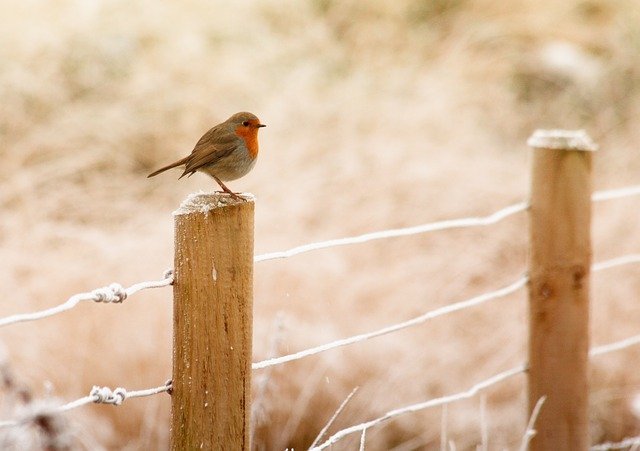
Birdbaths should be regularly filled with freshwater as robins love to bathe and drink regularly especially during the winter months and this water should be replaced daily.
List of Best Foods to Feed Robins!
Mealworms
Whilst robins love all types of grubs and insects, the best food you can buy to attract robins to your garden are mealworms. These come in dried form and are easy to store in your cupboard.
Robins prefer to eat from a flat surface and placing dried mealworms on a bird table that is in a safe place is perfect for inviting these amazing birds to your garden.
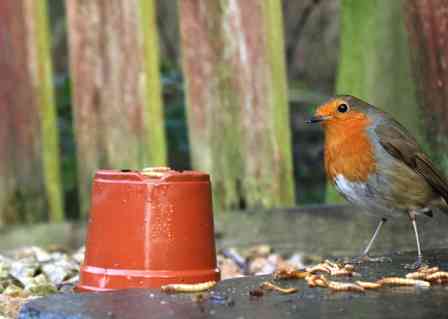
Mealworms, even though they are dried are packed full of nutrients, also include fat, protein, and fibre to ensure that a robin can get through what could be a tough winter.
Mealworms can be bought online and they arrive dried and well packaged, so for the faint-hearted out there, there is nothing crawling about in a packet to worry about.
When you place mealworms out for robins ensure that you sprinkle a little water on them as this will make them easier for the birds to carry and will prevent them from turning to dust.
If you add a small amount of water to the mealworms it will reduce how long you can leave them outside for as they will deteriorate so ensure that you know robins are present.
Sunflower Hearts
Robins love sunflower seeds, but the shell can sometimes defeat their small beaks. Opt for the hulled variety, known as sunflower hearts.
They are generally alright whole, but buying them kibbled, or crushing them into smaller pieces yourself, makes it easy for the birds to enjoy them.
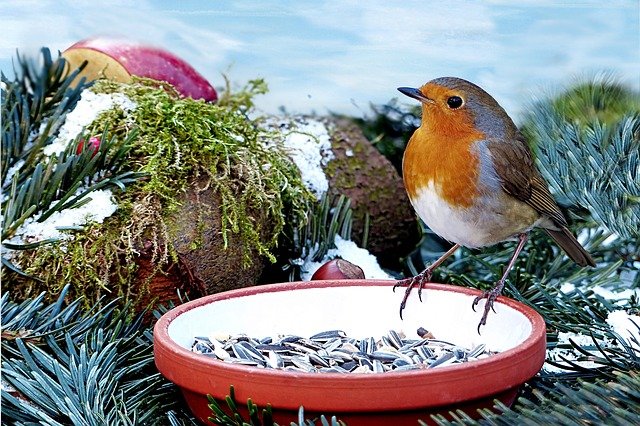
And enjoy them they will. These kernels of nutty goodness are rich in the healthy fats and proteins robins crave.
During Winter, that high-fat content is especially useful, and the protein is sought after during the mating season. These seeds are a year-round treat for robins and other birds.
Sunflower hearts also contain;
- Vitamin A
- B-6
- C
- along with calcium
- potassium
- fibre
- and iron
They are a fantastic addition to a balanced diet.
Serve them as part of a mix with other seeds, fruits, fats, and mealworms but limit the amount you place on your bird table to what you expect the birds to consume within 2 days.
Due to their oil content, these seeds will go rancid when not stored properly.
You May Like This >Squirrel Proof Bird Feeder Reviews
Besides placing the hearts on a bird table or tray, it’s fine to load them into a mesh feeder or to scatter them on the ground. Don’t worry about sunflowers taking over your yard.
Hulled seeds are less likely to pass through the robin intact, and it is infrequent that they germinate at all.
Nyjer Seeds
The sunflower isn’t the only yellow-petaled plant that produces seeds that make robins sing with joy. The African yellow daisy produces seeds known as nyjer seeds.
When shopping for these, be prepared to see multiple spellings of the name. Niger and Nyger® are two common variants.
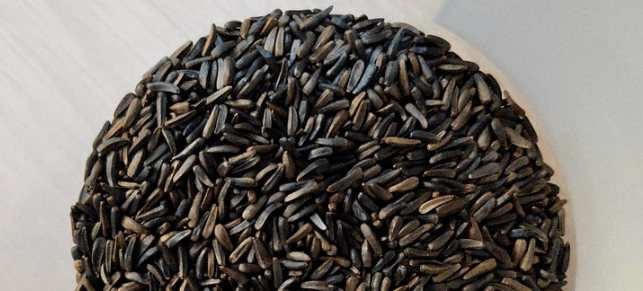
You may have also heard them called by a different name: thistle seeds. This is misleading, as they have nothing to do with thistle plants.
An oilseed, the nyjer seed is high in fat. In fact, over a third of its nutrient content comes in the form of fat, followed by protein and fibre.
Yet these tiny seeds also manage to pack even more into their black shells. They contain a little sugar, along with niacin, oleic acid, and antioxidants.
Nyjer seeds make for a messy meal when they aren’t contained within a feeder. The seeds are so small and light, birds will scatter the majority of them off of a bird table or tray while eating.
Seeds knocked to the ground are not entirely wasted, particularly in the case of robins, which are ground feeders. But, a nyjer feeder is a worthwhile investment to avoid waste, if you plan to use this pricey feed regularly.
Raisins
Most birds are crazy about the sticky-sweet morsels that are raisins, and robins are no exception. The result of drying grapes, raisins are filled with the same nutrients present when dried too.
Natural sugar provides robins with the readily available energy that feeds their high metabolism. Raisins are also a great source of potassium, fibre, protein, calcium, and vitamins.
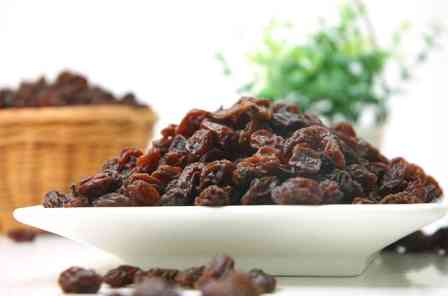
Fresh raisins tend to be soft enough for robins to peck into heartily.
However, in the warmer months, you should do your feathered friends a favour and soak the raisins in hot water to re-hydrate them before placing them out.
Soaking makes raisins easier to consume, while also providing fluids in the heat. Regardless of the time of year, hard raisins should be soaked until they are reasonably soft.
Serve them up on a flat feeder, like your trusty tray or table. Just make sure the location is out of reach of dogs and cats, as raisins are toxic to them, and could prove fatal if eaten.
Apple
An apple a day may keep the doctor away, but when it comes to robins, it’s a lure. It doesn’t matter which variety of apple you choose as long as they’re served upright, birds will chow down on them.
Like most fruits, the bulk of an apple’s calories come from natural sugar. They’re also great sources of Vitamin C and provide useful fibre.
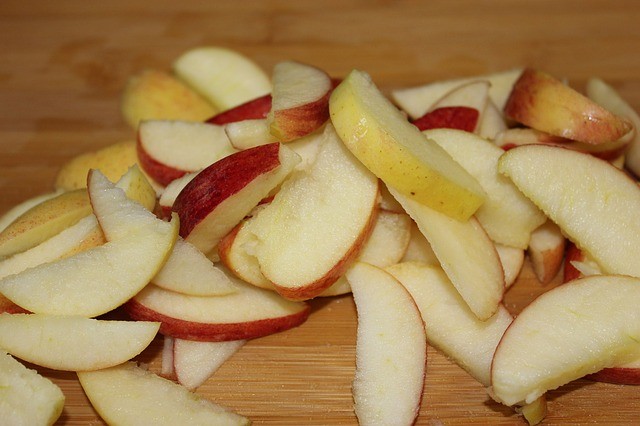
Served fresh, they are also full of moisture. If you choose dried apples, soak them to maintain this benefit, which makes them less of a task to eat for a robins beak.
To prepare whole apples, cut them into halves or slices, or chop them into even smaller pieces. Just make sure that the birds aren’t wasting time and energy dealing with the skin.
Also, keep in mind that overripe apples are preferable. The softer they are, the sweeter the flesh, and the simpler it is for little robins to peck out a beak-full.
If you’re using an apple feeder, peel the apple before you stick it onto the spike whole. Make sure the flesh is readily accessible.
Apples can go bad quickly and become a sticky mush that attracts flies and other pests. Be sure to clean up leftovers after a day or so, to avoid this problem.
Peanuts
These fat-rich legumes are beloved by a wide variety of birds and can be prepared in different ways to cater to each. When it comes to robins, you should definitely remove the shell.
The next step is to crush the seed into smaller, beak friendly pieces.
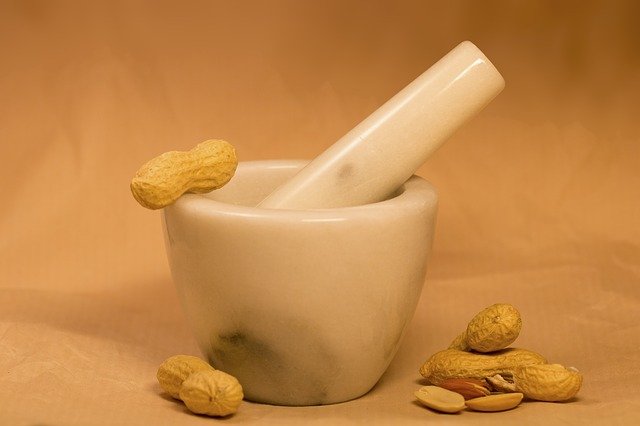
You can buy kibbled peanuts to avoid the hassle of doing all this yourself. Just make sure that you buy an unsalted variety, as all that excess sodium is detrimental to robins.
Once prepped, you have a healthy feed. Peanuts are high in fat, fibre, potassium, iron, calcium, protein, magnesium — they are well suited to avian diets.
Unfortunately, squirrels are also crazy about peanuts and will devour all that they can get their paws on. Don’t make it easy for them.
Purchase a squirrel-proof feeder to ensure the feed remains available to the birds.
Peanuts can be expensive to offer on a regular basis. Drive the cost down by mixing them with cheaper seeds, like sunflower hearts and even crushed dried peas too.
Suet
This is the ultimate solution when it comes to fulfilling the flock’s fat requirements. Suet is beef fat, or sometimes mutton fat, that can be rendered into tallow that birds adore.
There are no additional nutritional benefits to suet. It is a healthy form of fat, with negligible iron and protein content. Suet will also attract other small birds to feed in your garden.
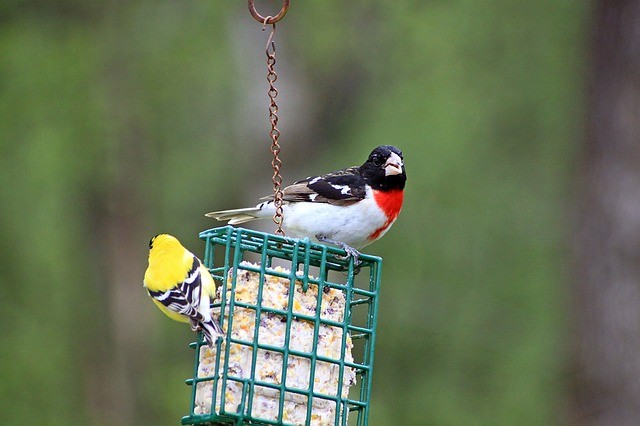
Alone, it only provides one of the robin’s dietary needs, but as a medium for combining other ingredients, suet allows you to make nutritionally complete cakes and bars.
Simply heat it until it melts into a liquid state, then add in seeds, nuts, dried fruit, and even insects in whatever combination you like.
Cool it in a plastic mould (ice trays yield great results) of your desired shape and size, and you’ve made your own bird nutrition bars.
Suet is most effective in winter for robins and you may find it goes off quickly during other seasons because most small birds, including robins, have enough to eat without visiting gardens
You shouldn’t put it out on hot days because it can melt into a mess that simply attracts pests. It can also go rancid if kept in high heat conditions too long.
You can find a variety of suet feeders, and this is another case where you should opt for a squirrel-proof model.
Maize
When it comes to the sweet treat of golden maize, robins have an advantage over humans because they can enjoy the kernels whether cooked or raw.
In either form, maize is a great source of carbohydrates, thanks to its high starch content. It also contains useful amounts of fibre, sugar, potassium, and iron.
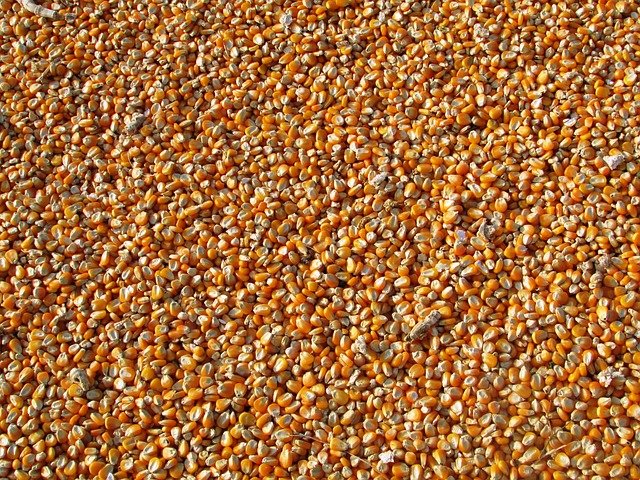
Additionally, cooked maize is plump with water, making it a source of fluids for a thirsty bird. Just make sure that the kernels were cooked with no added spices or salt.
Raw kibbled maize has its own advantages for robins. Whole kernels, even when cooked, can be too large for small birds to swallow whole, and unwieldy to break apart or get into.
Kibbled maize is broken down into smaller pieces, posing a little challenge for robins to eat and to digest. It is also less of a target for squirrels when scattered on the ground.
Maize is one of the more inexpensive feeds, so it is a good choice for a healthy, high energy filler to mix in with the other, pricier options.
It is versatile and can be offered on trays, in feeders, or as part of a suet mix.
Oatmeal
Robins will happily peck away at oatmeal, but it is important to only serve it to them raw.
Cooked or moist oatmeal eventually hardens to a rock-like consistency. If it hardens on a bird’s beak it could suffocate them, or cause them to starve.
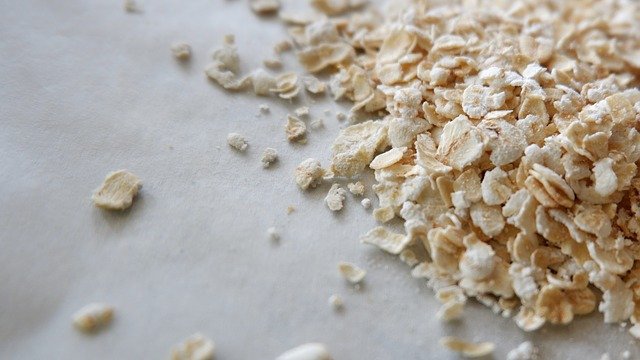
Even raw, there are further considerations. Of the three varieties of oats, you should prioritize instant and rolled oats. They have been processed, and are less troublesome for robins.
Pinhead oats can be used as well, however, and robins will eat them. But, they are more inflexible and will take longer to digest.
Oatmeal is as healthy for birds as it is for humans, though it has a very high iron content which can be dangerous for birds if they eat too much of it.
Otherwise, it is also high in fibre, vitamins A and B-6, magnesium, and calcium. It even contains a small number of healthy fats.
It is perfectly acceptable to strew oatmeal in the grass, as robins will diligently hunt for the tasty groats. But, consider adding them to a suet mix to add fat and other missing nutrients to the meal.
Potatoes
Potatoes are a food that birds prefer to be cooked. Baked or boiled, roasted or mashed, cooked spuds will surely have robin redbreast singing your praises.
But, don’t offer fried potatoes (chips) on the menu, and avoid serving them raw.
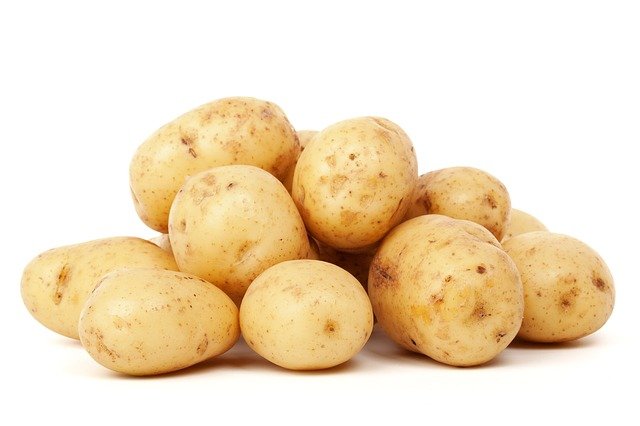
Fried potatoes have unhealthy levels of fat and sodium. On the other hand, raw potatoes have far too much starch, and they contain enzymes that interfere with a bird’s digestion.
When properly prepared, however, potatoes provide an excellent energy boost via carbs. Their high water content provides hydration, and a little protein and fibre make sure they are filling.
The skins just get in the way of this meal. If you are serving whole baked potatoes, cut them well open so that the birds can reach the soft interior.
However, you cook them, make sure you let them cool completely before offering them up. Potato interiors can remain quite hot and can injure an unwary robin.
As with the other feed types, don’t add any salt to the potatoes when you cook them. If you want to liven up the flavour or the nutritional profile, sprinkle seeds over them instead.
Collect the peels and remnants regularly, to avoid attracting pests. Potato is great compost material, so feel free to add the leftovers to your compost heap.
Cheese
Cheese represents a special treat for birds. Dairy products are generally bad for our beaked buddies, but some fermented dairy products are actually safe.
Note that I said “some.” When feeding cheese to birds, stick to mild varieties, and avoid soft cheeses. Mild cheddar is a safe bet that robins will find scrumptious.
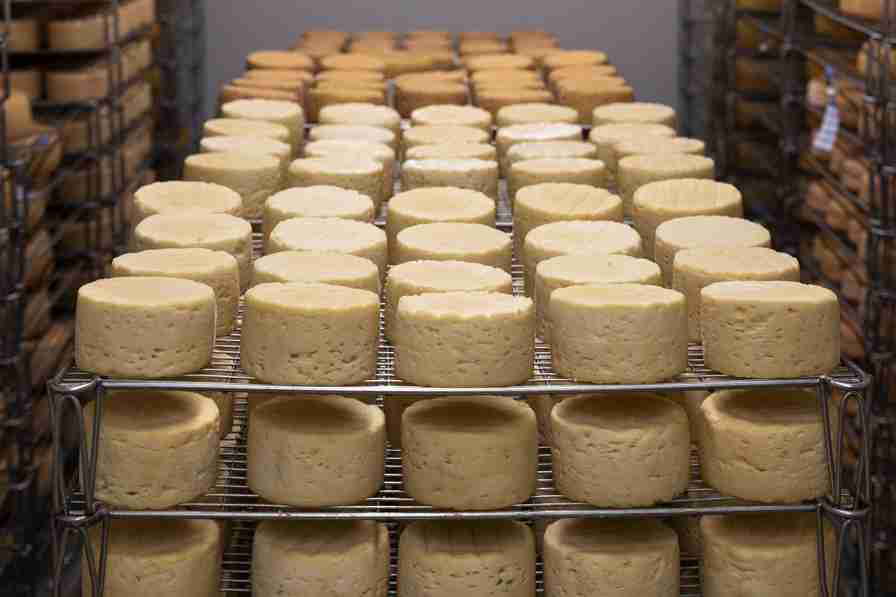
There are English cheeses that also fit the bill. Set the bird table with Wensleydale or Red Leicester for a locally-sourced meal. Cheese is a fat-rich food to keep a robin’s energy up.
It also has a balanced offering of potassium, protein, sodium, and cobalamin, and a high dose of bone-and-beak-fortifying calcium. Blocks, slices and hard cheese can be awkward for little birds.
To serve the cheese, first, grate it down into small morsels. Place it on a bird table or tray in limited amounts, and be sure to come back to clean up leftovers.
Cheese left outside can begin to show mould in a relatively short time, posing a health hazard.
Keep in mind that cheese should be offered as an occasional treat, and should never make up the bulk of your feed.
What Do Baby Robin Eat?
Robin chicks, like any other baby bird, seem to eat constantly.
If you ever find yourself having to fill in for mama and papa bird, know that you’ll need to be on call to fill the begging baby’s beak every 30 minutes to keep them sated and healthy.
But, what do robin chicks eat? They will eat anything that their parents would, so long as it’s served up in a portion size they can manage.
If you have the good fortune to watch them being fed in the wild, you’ll notice their diet consists mostly of mealworms, earthworms, insects, and grubs.
Berries and other fruit bits find their way into the mix as well. However, newborn and fledgeling birds require protein-rich foods of a high nutrient density for the best possible development.
Their parents seem to know this instinctually, and primarily provide insects and other invertebrates for their many meals.
If you want to help them, try to set your bird table or fill your feeder with that sort of feed during the breeding season.
Conclusion
Robins bring vibrant color and song with them wherever they dwell. Yet, their food preferences can also count among their many desirable traits.
The robin’s penchant for insects and grubs means they will lower the pest population in your garden. This is especially effective if you are hosting a breeding pair.
Make your yard or garden amenable to this tweeting tenant by setting a bird table with their coveted cuisine.
With a little luck, you can have the pleasure of watching and hearing little robin red-breast throughout the year.
FAQs | Popular Robin Diet Searches
Can Robins Eat Chocolate?
Never feed chocolate to any birds, robins included! They will readily eat it, and seem to enjoy the taste, but the chemicals in chocolate will cause a bird to experience severe, likely fatal, illness.
The chemicals in question are theobromine and caffeine. These two very similar alkaline compounds are not easily metabolised by birds.
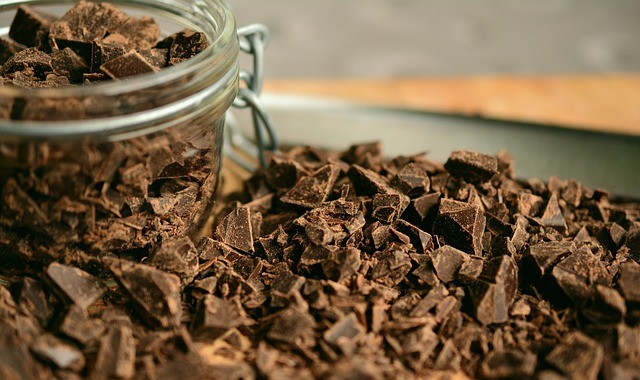
They remain in their system and wreak havoc on the kidneys, heart, and nervous system as a whole.
Even just a tiny piece of chocolate can cause a bird to have vomiting fits, diarrhoea, seizures, and heart failure. Keep chocolate far from your feathered friends.
Can Robins Eat Dog Food?
Some robins will gladly peck away at dog food, as you may have seen first-hand if you feed your dog outdoors. Don’t be alarmed by this behaviour.
Pet food is formulated to be safe and nutritious, and it should not harm the birds. In fact, it may well help them.
The mixture of protein, carbs, vitamins, and minerals present in kibble and canned dog food is likely to be more nutritious than the average finds in the wild — particularly during winter.
If you want to share Fido’s meal with the birds, make sure to soften dry kibble with water, and crumble the canned food into small, beak-sized bits.
Can Robins Eat Oranges?
As delicious as the juicy, sweet pulp of orange is to humans, many robins can take it or leave it. They tend to enjoy sweet fruits, but citric acid isn’t their favorite thing.
This is one of the areas where North American robins differ from their counterparts in the UK. You may have some trouble getting a European robin to try the new fruit at first.
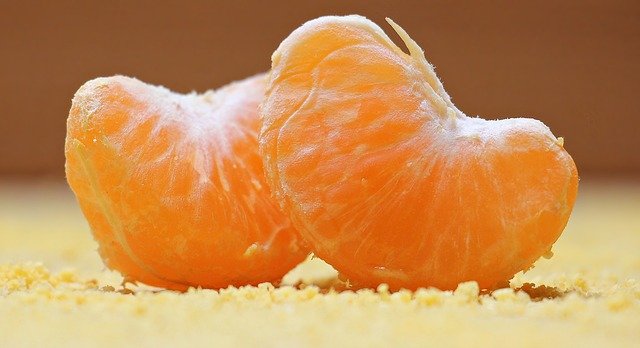
But, if they take to it, it makes for an excellent treat. Just make sure to keep the servings infrequent and small — about half the size of the bird’s head.
And, cut away all of the peel and tough connective fibres to provide a morsel that is easy to consume and digest.
Can Robins Eat Almonds?
Robins enjoy eating almonds when they are properly prepared for their consumption.
Whole almonds are too large and hard to consume, so you’ll need to crumble them into small pieces to make them palatable.
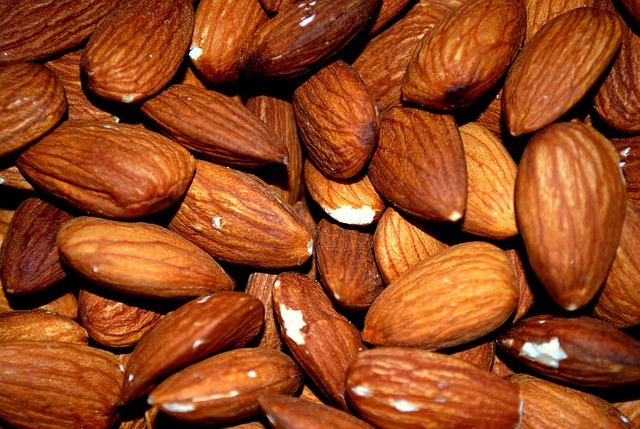
These nuts have a lot to offer, from protein to particularly high concentrations of vitamin E.
Almonds are also rich in fat, which makes them more appropriate as a winter feed. Because of that fat content, almonds should be served up in moderation regardless of the season.
Crumble a couple up and add them to a mixture of mealworms or other types of healthy feed.
Can Robins Eat Bacon?
Robins aren’t interested in eating the meat on a strip of bacon, but they do enjoy bacon fat. It’s animal fat, similar to the suet from beef that they love.
There are actually bacon fat feeders that allow you to drape cooked bacon over a receptacle that collects the fat drippings for the birds to consume.
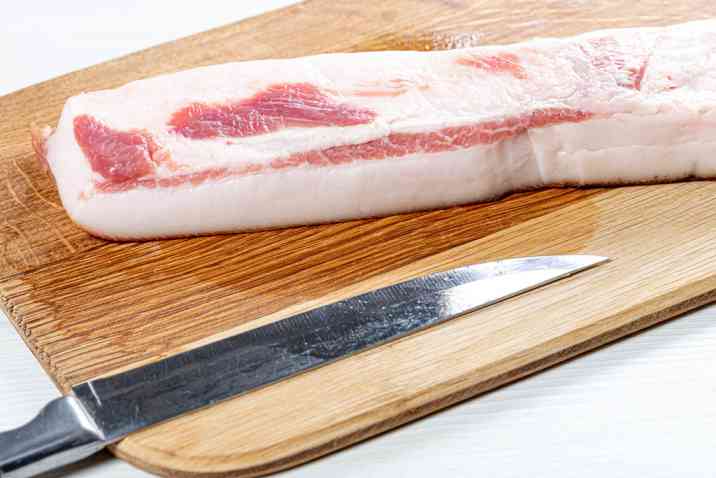
Of course, you can easily perform this task without buying special equipment.
It is important that the bacon used is unsalted. Otherwise, any part of it would be far too salty for a robin, or any bird, to consume safely.
This is another example of a food that is best served in moderation, and that is more appropriate in the cold seasons.